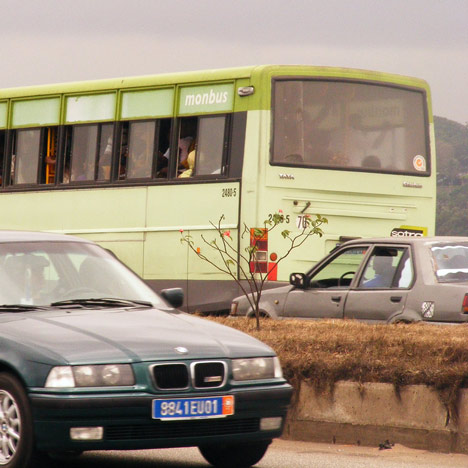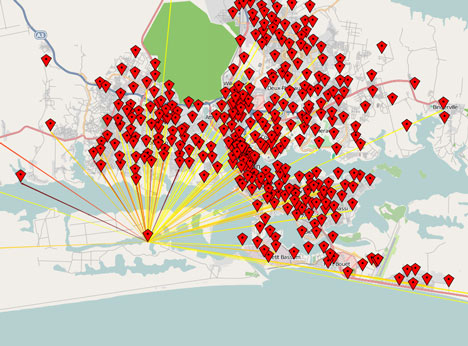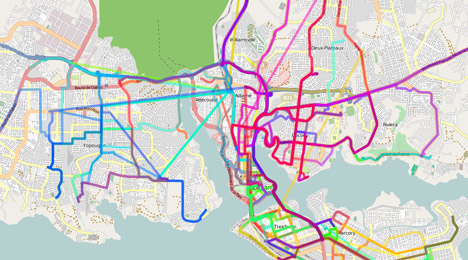
Mobile phone data used to redesign bus network in Ivory Coast
News: researchers from IBM have redesigned the bus routes across Ivory Coast's largest city using data from mobile phones.
The project, by a team from IBM's research lab in Dublin, Ireland, is an example of how so-called "big data" can be mined for information that leads to improved policies and services.
The researchers looked at 2.5 billion call records from mobile phone users to work out commuters' movements.
The anonymous data came from phones in the city of Abidjan, where a deteriorating public transport system has prompted a huge and unregulated fleet of private minibuses and taxis to spring up.

Commuters' journeys in these private vehicles can't be easily monitored by the city's authorities, so the IBM team used time and location data from call records and text messages to work out frequent routes.
They then looked at how well commuters were served by the city's buses and came up with 65 possible improvements to existing routes, concluding that they could reduce average travel times by 10 per cent.
"If transit agencies could have an effective tool to quantify the travel demand, as well as recommendations on how to best design the transit network, cities would be able to better support travellers' mobility demand through a regulated and efficient public transport system," the researchers explained in their report.

The AllAboard project, which is currently only a research exercise, was entered into the Data for Development competition run by mobile phone operator Orange, an open data challenge inviting researchers to find uses for its huge datasets of call activity.
Olivier Verscheure, a senior scientist at IBM's research laboratory in Dublin, told the BBC that the project only hinted at what could be gleaned from such huge datasets.
"If we could have merged the telco data with city data, such as the bus timetables we could have the potential to completely change the existing network," he said.
"Analysis of public transport and telco data would show how people move in a city and allow planners to create a bike sharing infrastructure from scratch, for example."
Earlier this year we featured a concept to make highways safer with glow-in-the-dark roads and responsive street lamps – see all transport design.
Top photograph is by Abdallahh.